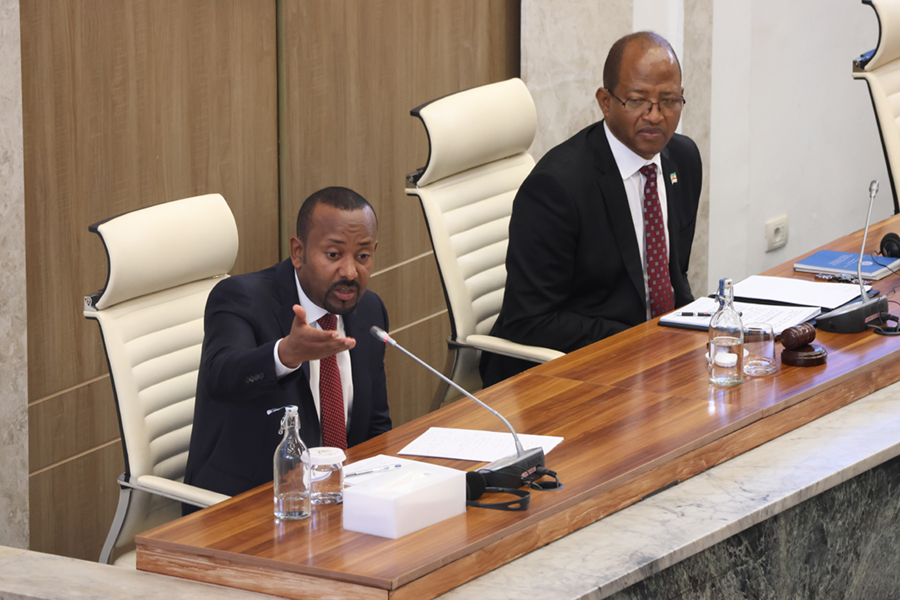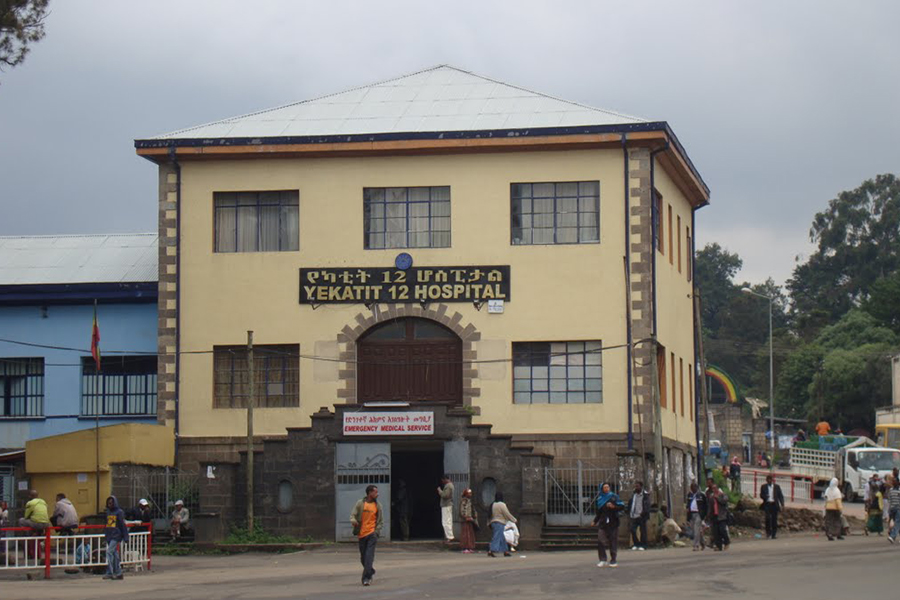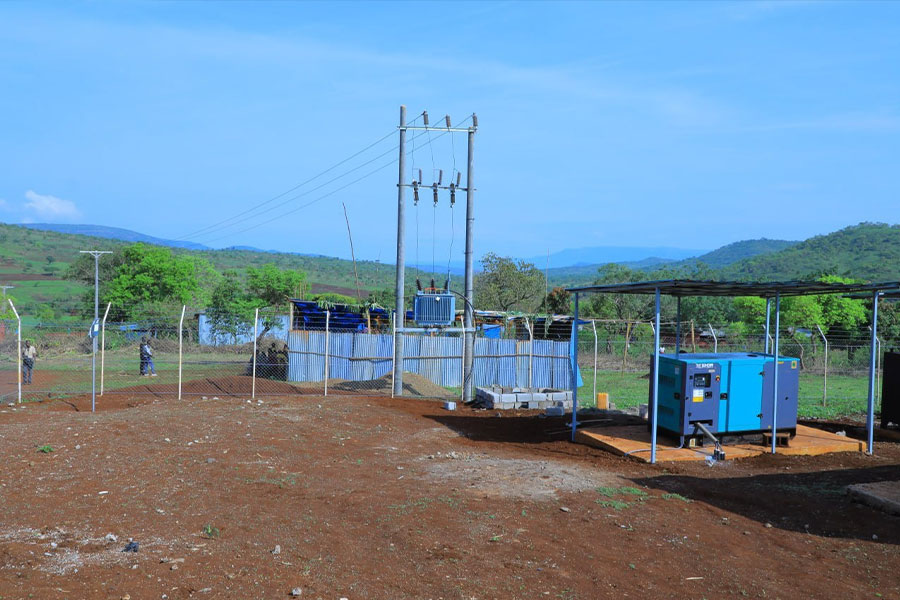
The College of Health Science under Addis Abeba University begins its quest for autonomy riding on a bill under the formation of the University. Experts at the University which became autonomous two weeks ago are formulating six directives related to the senate, governance, income and infrastructure.
Meanwhile, a committee comprising 14 team members led by Damen Hailemariam (Prof), dean of the School of Public Health, submitted a proposal that entails the findings and recommendations of the Health Science College to the University's administration.
According to Damen, the move which aims to improve academics, human resources and financial models of the College will be in motion in the next fiscal year.
This ardent initiative does not come without reforms.
Carving out revenue-generating mechanisms and enhancing professional development through credit-based training as a prerequisite for license renewals is paramount while setting standards for both academic and operational staff.
"Revenue generation is the most crucial one," said Damen.
Service fees are also slated for refinement by tracing individual patient care activities and calculating the expenditure incurred by the health care provider, which will be implemented after the Social Health Insurance commences, according to Damen.
"We would not want a defensive reaction," he said.
The College currently hosts four school departments: the School of Medicine, Public Health, Pharmacy and Midwifery in Tikur Anbessa Hospital. The team aspires to add two more schools of Medical Laboratory and Radiography & Anesthesia.
They plan to set standards for student admission, including entrance exams distinct from the national entrance exam while carving out the curriculum as the future depends on the quality of education.
The waning educational quality became pronounced in recent years, evidenced by the underwhelming workforce leaving the institutions. Education experts attribute the lack of academic freedom and institutional autonomy within higher education institutions as the main factors for the cause.
Desalgegn Anshiso (PhD), the education researcher, observes that prioritising quality over quantity will be realised under autonomy. He believes politics can be a challenge while recruiting competent academic staff while contributing to the deterioration of education quality.
Tikur Anbessa, the largest referral hospital in the country with over 15,000 daily patient intake, has been grappling with a limited budget. Nearly 600 million Br is appropriated for the fiscal year where grants and funds account for half.
The emergency service centre is a microcosm of the hospital's perils. Although initially designed to have nine floors, construction has been stalled for eight years due to management reshuffling and fiscal constraints. The three-storey centre that is currently in operation can only accommodate 42 of the over 60 patients who visit it every day.
"The rooms are not designed to accommodate patients making their way to the hospital," said Demelash Gezahegn (MD), emergency medical services director. "Poor setups and scarce medical equipment have patients going for days without getting the desired treatment."
Demelash also noted that the stress of working in such an environment is taking a toll on the hospital's staff. "It's not uncommon to see psychologically stressed professionals in this environment," he said.
Demelash hopes that the hospital's recent autonomy will allow it to address the budget deficits and deficient equipment that have plagued it for many years.
Andualem Deneke (Prof), president of the College shares the sentiment. He believes the series of reforms towards budgetary autonomy will bring achievements to the facility, strengthening the healthcare system and improving the infrastructure.
"The hospital has remained chronically underfunded," he said.
Along with his team, Damen suggests mobilising resources by forming alumni associations, and separating academic and professional income while establishing private wing services to improve salaries.
The Committee behind the proposal believe it will encourage professionals to work at their optimal point.
A result-oriented incentive plan based on contributions puts a glimmer of hope for Ousman Hussien, 29, who is a third-year resident at the gynaecology department. Low wages despite long working hours have been frustrating for Ousman who barely covers his living cost with 11,500 Br monthly salary.
"It's difficult to get to the end of the month," he said.
Experts observe the perils and promises of health sector autonomy through economic and institutional standpoints.
Getasew Amare, a health economist, found the move to revitalise the health sector up to standard.
"It is a bold move," he said.
He supposes that autonomy promises a high return on investments for professionals, perpetuating innovative approaches and promoting competitiveness.
However, the expert is reserved on its execution where the risk of financial interests over public service may prevail leaving many unable to pay.
"There will be an epidemiologic shift from need-based to demand-based service," he said.
Getasew warns freedom of revenue mobilisation for institutions may open doors to corruption indicating the leadership and management capacity of those in the higher position should be taken into account.
Although there are reservations about management capacity, the success stories of autonomy continue to exemplify what can be achieved when a hospital college is granted academic autonomy.
St. Paul's Hospital Millennium Medical College was the first teaching hospital to gain academic autonomy. It has undergone a significant transformation in the past 14 years.
The College sets its own curriculum, admits students based on merit and provides professional development opportunities for the faculty staff. The academic offerings expanded from three to 20 programs, accepting upto 80 students and adding the schools of Nursing and Public Health to its portfolio.
Former College President, Wendimagegn Gezahegn (MD), attributes these changeovers to academic autonomy.
"It has allowed us to advance the quality of education we offer," he said.
Through grants, it was able to advance the careers of professionals through sub-speciality opportunities to study abroad and serve incentives to physicians based on their performance.
"Sub-specialty programs are essential for providing high-quality care to patients," said Wendmagegn.
The College is poised to continue its growth and innovation with a budget appropriation of 1.8 billion Br for the current fiscal year. In addition to academic autonomy, it is moving towards achieving financial autonomy through public-private partnerships to generate its own revenue.
"It'll allow long-term investments in infrastructure without relying on government funding," he said.
PUBLISHED ON
Aug 12,2023 [ VOL
24 , NO
1215]

Editorial | Apr 27,2024

Editorial | Apr 09,2023

Fortune News | Aug 21,2021

Fortune News | Jul 07,2024

Radar | Feb 24,2024

Fortune News | Oct 03,2020

Fortune News | Sep 10,2022

Viewpoints | Nov 18,2023

Radar | May 31,2025

Fortune News | May 27,2023

Dec 22 , 2024 . By TIZITA SHEWAFERAW
Charged with transforming colossal state-owned enterprises into modern and competitiv...

Aug 18 , 2024 . By AKSAH ITALO
Although predictable Yonas Zerihun's job in the ride-hailing service is not immune to...

Jul 28 , 2024 . By TIZITA SHEWAFERAW
Unhabitual, perhaps too many, Samuel Gebreyohannes, 38, used to occasionally enjoy a couple of beers at breakfast. However, he recently swit...

Jul 13 , 2024 . By AKSAH ITALO
Investors who rely on tractors, trucks, and field vehicles for commuting, transporting commodities, and f...

Jul 12 , 2025
Political leaders and their policy advisors often promise great leaps forward, yet th...

Jul 5 , 2025
Six years ago, Ethiopia was the darling of international liberal commentators. A year...

Jun 28 , 2025
Meseret Damtie, the assertive auditor general, has never been shy about naming names...

Jun 21 , 2025
A well-worn adage says, “Budget is not destiny, but it is direction.” Examining t...